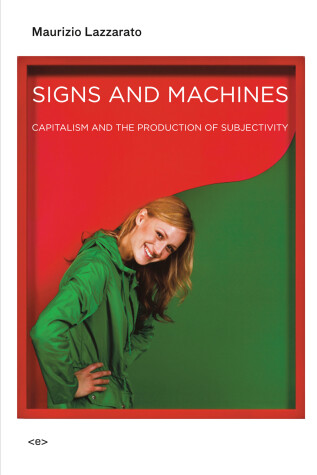Semiotext(e) / Foreign Agents
2 total works
“We are at war,” declared the President of the French Republic on the evening of November 13, 2015. But what is this war, exactly?
In Wars and Capital, Éric Alliez and Maurizio Lazzarato propose a counter-history of capitalism to recover the reality of the wars that are inflicted on us and denied to us. We experience not the ideal war of philosophers, but wars of class, race, sex, and gender; wars of civilization and the environment; wars of subjectivity that are raging within populations and that constitute the secret motor of liberal governmentality. By naming the enemy (refugees, migrants, Muslims), the new fascisms establish their hegemony on the processes of political subjectivation by reducing them to racist, sexist, and xenophobic slogans, fanning the flames of war among the poor and maintaining the total war philosophy of neoliberalism.
Because war and fascism are the repressed elements of post-'68 thought, Alliez and Lazzarato not only read the history of capital through war but also read war itself through the strange revolution of '68, which made possible the passage from war in the singular to a plurality of wars—and from wars to the construction of new war machines against contemporary financialization. It is a question of pushing “'68 thought” beyond its own limits and redirecting it towards a new pragmatics of struggle linked to the continuous war of capital. It is especially important for us to prepare ourselves for the battles we will have to fight if we do not want to be always defeated.
“Capital is a semiotic operator”: this assertion by Félix Guattari is at the heart of Maurizio Lazzarato's Signs and Machines, which asks us to leave behind the logocentrism that still informs so many critical theories. Lazzarato calls instead for a new theory capable of explaining how signs function in the economy, in power apparatuses, and in the production of subjectivity.
Moving beyond the dualism of signifier and signified, Signs and Machines shows how signs act as “sign-operators” that enter directly into material flows and into the functioning of machines. Money, the stock market, price differentials, algorithms, and scientific equations and formulas constitute semiotic “motors” that make capitalism's social and technical machines run, bypassing representation and consciousness to produce social subjections and semiotic enslavements.
Lazzarato contrasts Deleuze and Guattari's complex semiotics with the political theories of Jacques Rancière, Antonio Negri and Michael Hardt, Paolo Virno, and Judith Butler, for whom language and the public space it opens still play a fundamental role. Lazzarato asks: What are the conditions necessary for political and existential rupture at a time when the production of subjectivity represents the primary and perhaps most important work of capitalism? What are the specific tools required to undo the industrial mass production of subjectivity undertaken by business and the state? What types of organization must we construct for a process of subjectivation that would allow us to escape the hold of social subjection and machinic enslavement? In addressing these questions, Signs and Machines takes on a task that is today more urgent than ever.

